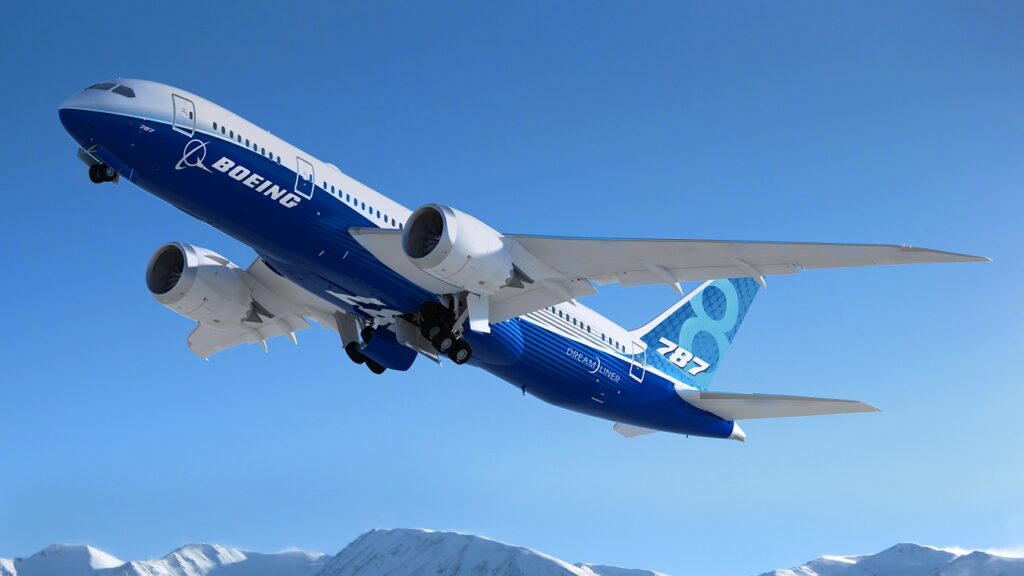Partnerships key for United Cargo’s growth
06 / 02 / 2023

United is striving to keep its customers onside, evolve strategic partnerships and focus on re-establishing a strong network, explains Ian Putzger.
The resurgence in passenger traffic appears not to have dented United Airlines’ cargo business.
Although widebodies reverted to passenger routes, the carrier outperformed most other airlines on cargo in the third quarter.
United has been one of the most enthusiastic proponents of the passenger freighter concept, having run altogether about 17,000 cargo flights. Unlike other carriers, it did not change the configuration of the aircraft.
As passenger traffic picked up, those planes have been redeployed for their original purpose, so flight schedules and route selection are again dictated by the passenger business.
“There are certain markets where we could do more with cargo,” says Jan Krems, president of United Cargo, adding that a lot of passenger markets are also strong on the freight side.
Cargo plays a role in the airline’s selection of routes and frequencies, such as deploying larger aircraft or boosting frequency to accommodate cargo needs, he stresses.
On the sector to Australia the airline has capped passenger loads at 90% to leave capacity for freight in response to booming demand.
In the third quarter, which saw most airlines’ cargo income sink year-on-year as demand fell, United’s cargo revenue contracted by a comparatively moderate 4%, resulting in a 4% gain for the first nine months of the year to $1.7bn.
At $498m, quarterly revenue was 77% higher than in the same period in 2019 on 9% lower RTKs.
Krems says that there was no secret sauce behind United’s comparatively strong performance, apparently less affected than many peers by the market downturn and the end of cargo-only flights.
“The cargo industry is 60% people business; the rest is quality, service and fleet,” he comments, adding that the airline stayed close to its customers.
“We could have made much more money than we did, but we chose to be reasonable with our partners. That helped when the market became a bit tougher,” he says.
The recovery of passenger routes has helped in some ways, allowing the cargo division to leverage a rebuilt network.
On the US-Latin America market the airline is now 15% bigger than before Covid, and it is now the biggest player on the transatlantic, according to Krems.
Much of the focus is on the major gateways, but Krems has a broader approach to the European market.
“There are a lot of markets where we can play,” he says, referring to making use of smaller stations with little O/D traffic through trucking, as long as the margins are good enough to compensate for the additional trucking cost.
Developing interline relationships
In the transpacific arena, traditionally a strong focus for United, the carrier’s presence in the biggest market – China – is down drastically at this point, shrunk from about 100 flights a week before the pandemic to just four.
To some extent, this is compensated by the rise of other markets in Asia, as production has shifted out of China to the likes of Vietnam, Thailand, Cambodia and the Philippines.
United has limited capacity in these countries, so the cargo division has focused on developing interline relationships to funnel traffic through Japan, where it has a strong presence.
This creates a win-win scenario, as it gives those regional partners access to the US and allows United to tap into those markets, Krems says.
To him, interline agreements equal block space deals. A lot of past interline arrangements were essentially rate agreements that did not include commitments on capacity and were of little use, he finds.
“If I do something on another carrier, I need to make sure that we have the same quality and service as it would be on our own flights,” he says.
“I want fixed agreements that are a win-win for both. They can get fixed space on us, and we get the same on them, and then see what markets can we really do and can we focus on and not have 150 or 200 rate agreements or more and if you check them a year later you see that 60, 70 were hardly used,” he adds.
Japan is not the only focus as an access point to Asian markets through partnerships. At the end of September Krems and his counterpart at Emirates SkyCargo signed an MoU for a strategic alignment.
According to him, “a joint venture is something that’s far, far away”, but he sees strong promise in an interline arrangement with block space agreements.
“They’re very strong, of course, beyond their hub of Dubai,” he says, adding that this opens up possibilities to serve India, Pakistan, Sri Lanka and Bangladesh, where United faces significant payload restrictions.
Progress on United’s joint ventures with Lufthansa and All Nippon Airways has been hampered by Covid, especially with the Japanese carrier. Working groups have started on expanding these and identifying goals that offer mutual benefits.
One possible avenue of interest for Krems would be to get access to the partners’ freighter capacity. While he has no plans to acquire cargo aircraft, he would find it useful to have access to maindeck capacity.
At this point United’s own capacity plans are still in the air. Management has signed deals for some 270 narrowbody aircraft, but no decision has been announced on its plans for the widebody fleet, where nearly 130 planes are at least 20 years old.
Seven B787s are on order, but an order for 45 A350s has been postponed. Altogether the airline is expected to bring in about 100 widebodies.

B787-8. Photo: Boeing
Adding value via products
In the meantime, the cargo division is contemplating its product line-up.
“You need general cargo, but it’s really important that you grow your added-value products,” says Krems, adding that these tend to foster stronger ties with customers, on top of generating higher margins.
He is aiming for 60-65% of United’s business to come from specialty service.
He has his sights on a service that targets high-end perishables. Commodities like flowers and fish are nice, but shippers of those decide largely on price, with little room to develop stronger ties, he says.
“If you look at certain segments and certain markets, we really see there is potential to do more and to do better.”
Another focus for the coming year is on digitisation. United has launched a beta project with 12 clients for online bookings of express and general cargo. “It works, but it could be better,” he remarks.
United has also introduced a price quote tool that gives visibility of all the different options and possible routes.
“It’s there, but it’s not good enough, so we work on finalising requirements and our pricing strategy,” he says.
Dynamic pricing for online quotes and bookings is also in the works. Besides development of APIs, this will be a focus in the year ahead.
Sustainability is another priority. United has been in the vanguard of securing alternative fuel supplies, but that push is hampered by the shortage of available biofuels.
In November, United announced an investment in a biofuel refinery project in Oregon that is expected to start production in 2026.
Earlier in the year, the airline also teamed up with Bolloré Logistics to purchase 3m litres of sustainable aviation fuel (SAF).
For the cargo division much of the focus has been on sustainable fuel, but it is also exploring opportunities in packaging, such a bio-degradable pallet wraps, and scrutinising the emissions related to its trucking network.
Between these plans and the cultivation of partnerships, 2023 should be a busy year for Krems and his team.
Emirates SkyCargo and United Cargo sign cargo interline and block space MoU
Bolloré and United respond to shippers’ green drive with SAF partnership














